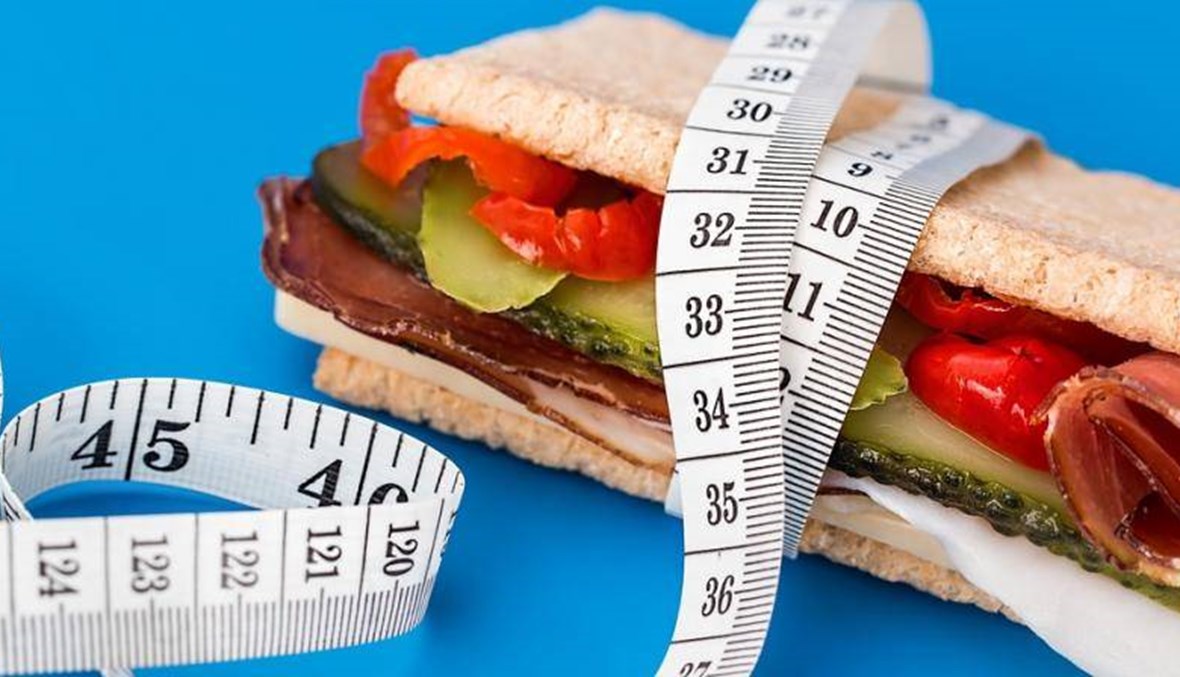
BEIRUT: COVID-19 lockdowns have brought major life changes for many, leading to widespread fear, instability, and upheaval of routines. For people with eating disorders, the challenge is greater. Shelter-in-place orders have made their struggle more difficult.
The Middle East Eating Disorders Association (MEEDA) has witnessed a significant increase in helpline calls and queries since the beginning of stay-at-home restrictions and there has been a rise in contact via emails compared with previous months.
Carine El Khazen, clinical psychologist and MEEDA's vice president, said that several patients, who had started to recover from an eating disorder, relapsed amid the new living conditions imposed by the pandemic.
"There has been a sharp uptick in problem reports from my patients," El Khazen told Annahar's NAYA. "This is caused by many factors, chief among them are constant access to food and continual talk about it, lack of distraction, changes in care plans, closure of gyms, in addition to social isolation and uncertainty of the future, which often leads to more anxiety, and therefore, fuels ED actions."
On a related note, El Khazen, who is also an ED and obesity specialist, said that eating disorders are related to control.
"When we feel that we cannot control what's happening around us, we try to focus on what or how we're eating," she pointed out. "ED sufferers, particularly those diagnosed with anorexia nervosa, resort to food restriction to feel more stable and in control of their bodies." She added that this feeling is most likely amplified now because of COVID-19.
Joanna Jleilaty, an ED survivor who became an empowering coach, shared her experience with NAYA.
"The first two weeks of the COVID-19 sheltering were challenging. It took me some time to adapt to the unusual lifestyle," Jleilaty said. "Temptation was there and hard to resist; being close to the kitchen, thinking about food all the time because it's available, worrying about calories, and not having meal schedules due to habit changes were the perfect storm for ED triggers.”
Jleilaty, however, managed to overcome binge eating.
"I applied the practices I learned during my recovery journey and was able to make it through those times," she revealed.
Eating disorders include issues with both overeating and restricting food. According to MEEDA, overeating was more common during the coronavirus crisis.
"One of the main reasons behind this is food shortage as a result of supply chain issues," El Khazen mentioned. "Stocking up on food due to perceived scarcity can have negative consequences; an excess of snacks at home may push those struggling to revert to old patterns of behavior."
Internet: is it a toxic space or support community?
Dr. Lea Sawaya, PhD, clinical psychologist, psychotherapist, and expert in Cognitive Behavioral Therapy (CBT); INSERT INTO articles (articleId, timestamp, date, title, teaser, slug, status, primaryCategory, description, authorId, sourceId, url, lastUpdate, hasImage, contents, summary) VALUES told NAYA that the internet, in general, is not an unhealthy environment for ED sufferers.
"Many turn to social media for community engagement and support. This can be effective in some cases, but in many other instances, it can backfire," Sawaya explained. "Some accounts, which are not carefully managed, tend to give their followers unrealistic expectations. For people with eating disorders, this can provoke anxiety, emotional trauma, and depression as well as lower their self-satisfaction and self-esteem levels."
Sawaya believes that online pressure to transform oneself can be difficult for someone with an eating disorder in an already tough time.
"Bloggers and influencers posting all the time about how much sport they’re doing, promoting exercise apps, and talking about their diets make the struggle with negative body image and relationship with food even harder," she stressed.
Moreover, memes and jokes about diet culture can play a role in slowing recovery and increasing the risk of relapse, Sawaya mentioned.
Jleilaty agrees that a social feed nowadays can be filled with toxic content.
"Some news we see on social media make us feel we're not enough. Consequently, we stop loving and taking care of ourselves because we think that even if we do we will not reach perfection." Jleilaty noted, warning that "it's a trap."
"Don't fall for it," she emphasized. "All you need to do is a clean-out of what you see online. That's what I did recently. I asked myself 'Do I feel better or worse after seeing that?' I, then, unfollowed and muted accounts accordingly."
Jleilaty underlined "the importance of bracing your uniqueness to develop yourself further."
Relationship with food during coronavirus lockdown: how to cope if you're struggling?
"First and foremost, stay away from any media consumption that leads to self-criticism and makes you compare yourself with others," Sawaya stressed. "Surround yourself with positivity and be kind to 'you' by increasing self-care and practicing mindfulness."
For her part, El Khazen spoke about the importance of seeking support and communicating whether with a therapist or loved ones.
"Connect with people who bring out the best in you. Also, ask for professional guidance," EL Khazen noted. "You don't have to sit and eat with your parents if your diet is different than theirs. You can, instead, schedule a virtual call with your friends while consuming your meals."
She added: "Avoid mirror checking and exposure. Don't keep on trying on your clothes. Weigh yourself once a week only. And remember, recovery is always possible. Just have hope and never give up."
For anyone struggling with the issues raised in this piece, MEEDA is available to help and provide needed support. Contact them on: [email protected]
---
Welcome to “NAYA," the newest addition to Annahar’s coverage. This section aims at fortifying Lebanese women’s voices by highlighting their talents, challenges, innovations, and women’s empowerment. We will also be reporting on the world of work, family, style, health, and culture. NAYA is devoted to women of all generations-NAYA Editor, Sally Farhat: [email protected]
NAYA on Social Media
Twitter: @BeirutNaya
Instagram: @NayaBeirut





 Messenger
Messenger
 Whatsapp
Whatsapp
 Threads
Threads
 Email
Email
 Print
Print
 X
X
 Facebook
Facebook

